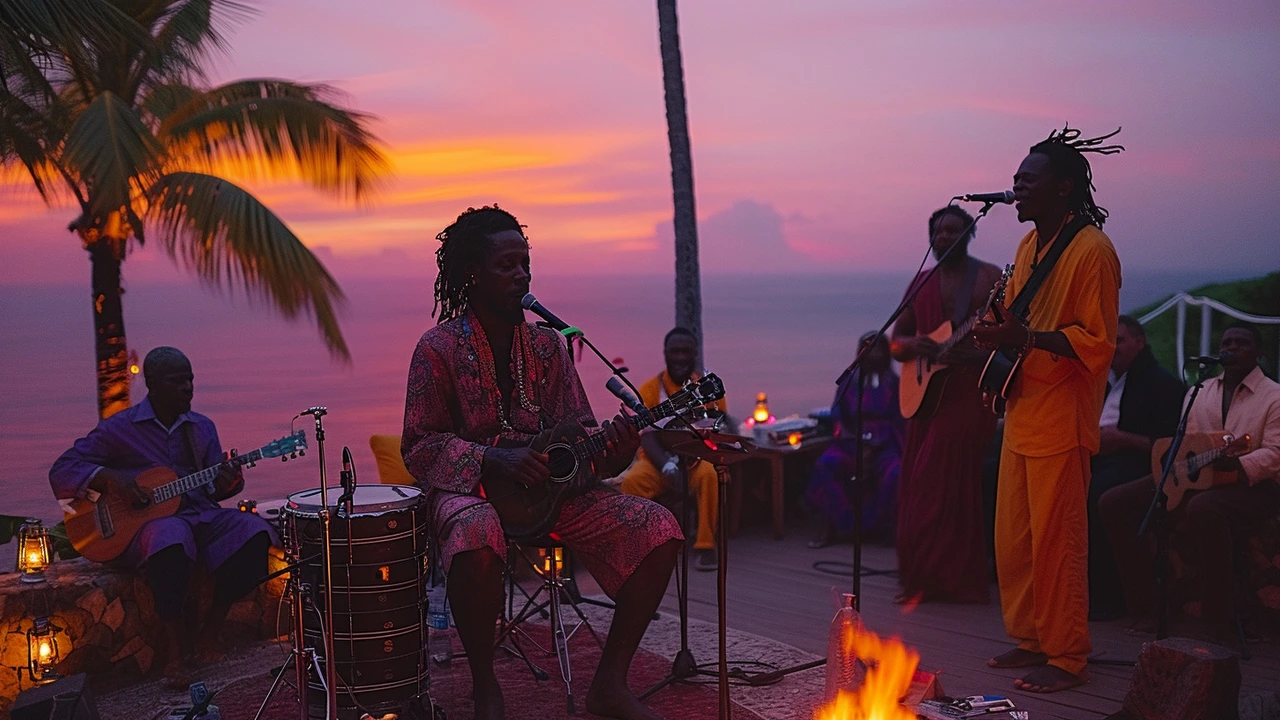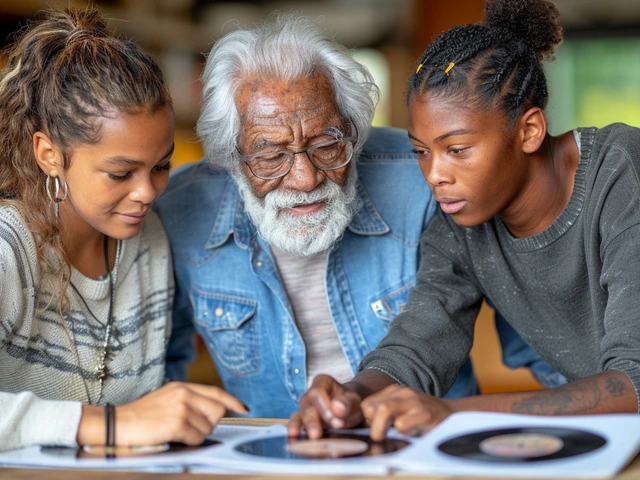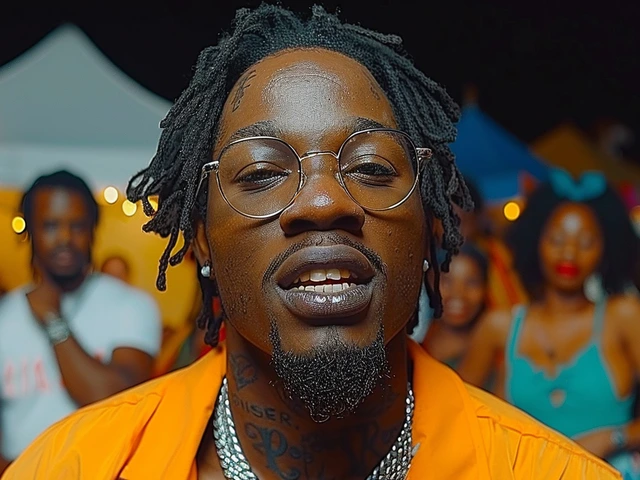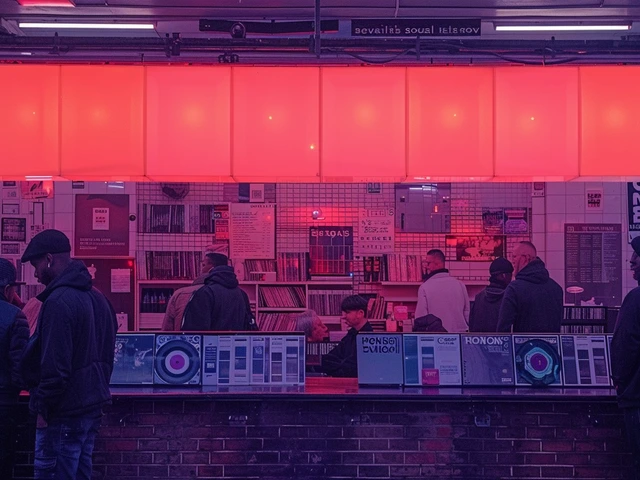The Soul of Reggae: Its Origins and Evolution
The story of reggae is, at its core, a story about overcoming obstacles and creating unity in diversity. The genre was born out of the tough circumstances that plagued Jamaica in the 1960s. Despite the hardships, the people found joy, love and community. The heartache and hope, the struggle and triumph, all of these were woven into the fabric of reggae music, creating a soundtrack that echoed the human experience in its entirety.
Reggae music has evolved over the decades, molding itself to the changing times. It has absorbed influences from various genres such as ska and rocksteady, but has remained true to its roots, churning out lyrics that speak of love, unity, and freedom. From the catchy beats of Bob Marley’s ‘One Love’ to the fiery passion in Peter Tosh’s ‘Equal Rights’, reggae music encapsulates a world-view that seeks equality, freedom, and unity. Thank the universe for these Jamaican heroes whose voices still ring out, reminding us of the power of unity and love in the face of adversity.
The Beat that Binds: Understanding Reggae Rhythm
The heartbeat of reggae is its distinctive rhythm. Known as the ‘One Drop’, this rhythm pattern is characterized by the emphasis on the third beat in a four-beat bar, often accentuated by the guitar or piano. What's intriguing is how reggae artists play with this rhythm, sometimes dropping the first beat, adding a percussive shuffle or syncopating the rhythm to give their music a unique signature.
No matter how you slice it, the rhythm of reggae isn't just about making you tap your feet or sway your hips, it's about making your heart beat in time with the music. It teaches us a valuable lesson that life may have its ups and downs, but it is the rhythm, the consistency that allows us to keep moving. Just like a beat that holds a song together, it's our daily routines, the mundane things that we often overlook, that hold our lives together.
Bob Marley: The Reggae Revolutionary
One cannot discuss reggae without mentioning the indomitable spirit and powerful voice of Bob Marley. From a small village in Jamaica, he rose to international stardom, using his music as a platform to speak against social injustices and advocate for unity. His songs, full of powerful lyrics coupled with hypnotic reggae beats, have become anthems for peace and unity worldwide.
I can recall once, when my kids, Parke and Mabel were toddlers, we'd put on 'Three Little Birds' to soothe them. Even my pets, Max and Skye, seemed to resonate with the calming frequency that Marley’s music brought into our home. His spirit lives on, not just in the world of reggae, but resonates with every individual seeking peace, love, and understanding in a world that often lacks these fundamentals.
Reggae Fusion: When Genres Collide
Remarkably, reggae's influence spans beyond its traditioạl sound. We've seen an interesting confluence as artists blend reggae with other genres, creating a fusion of irresistible soundscapes. From Reggae Rock, Reggaeton to Reggae Fusion with hip-hop, jazz, or R&B, the fusion genres keep the essence of reggae but give it a contemporary and refreshing twist.
These fusion genres demonstrate that reggae, much like life itself, is dynamic, free-flowing and adaptable. It is a testament to the genre's flexibility and influence, demonstrating how music is a universal language, capable of breaking down barriers and building bridges, connecting people despite their differences.
'Dub' In: An Experiment with Sound
Amongst the sub-genres of reggae, one that stands out for its innovative nature is Dub. Dub music is a form of reggae that originated in 1960s Jamaica. It's essentially instrumental remixes of existing recordings and is often marked by extensive use of echo, reverb and pan, creating a mesmerizing soundscape that's hard to ignore.
Just as life throws us unexpected twists and turns, dub music takes the familiar and remixes into something unique and unexpected. It teaches us a valuable lesson about how changes, even unexpected ones, can bring about something beautiful if we are open to the possibilities.
Reggae on the Dance Floor: Let Your Body Speak
Reggae isn’t just about the music, it’s also a vibrant dance culture. From the lively moves of ska to the slow, sensual sway of lovers rock, reggae dance is an integral part of the reggae experience. It's another way the genre connects people, breaking down barriers and creating unity on the dance floor.
I've often found joy letting loose to a reggae beat. Dancing, especially with others, is a celebration of life itself. It's a wonderful way to connect with others and share moments of pure joy, much like the ethos of Reggae itself.
Reggae: The Global Pulse
From the streets of Kingston to worldwide dominance, reggae has proven itself to be more than just a genre; it's a global movement. Its influence has touched every corner of the globe, inspiring local artists to express themselves and give voice to their struggles and joys through this unique and powerful medium.
As Reggae music continues to evolve and spread, it continues to echo its undying message of love, unity and resilience. So, whether you're listening to reggae, dancing to its rhythms or simply living its message, remember that at its core, reggae is a celebration of life and unity. It’s music that beats for us all, a universal song that calls us to live together as one.




Write a comment